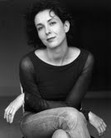Running Away From Home Does Not Burn Calories
 When I was twenty-three years-old, I moved to Prague, Czechoslovakia. I could say it was to meet my extended family who, until a few short years before I bought my one-way ticket, had been trapped behind the Iron Curtain – and that would be true. I could say it was because I loved adventure and Prague was the place to be at the time and that would also be true. I could say it was to get a greater understanding of my own family, but I’d be giving myself way too much credit.
When I was twenty-three years-old, I moved to Prague, Czechoslovakia. I could say it was to meet my extended family who, until a few short years before I bought my one-way ticket, had been trapped behind the Iron Curtain – and that would be true. I could say it was because I loved adventure and Prague was the place to be at the time and that would also be true. I could say it was to get a greater understanding of my own family, but I’d be giving myself way too much credit.
Mostly, I moved to Prague to get away from my family.
I wanted to escape a loving, but distant relationship with my mother, and a close, but blood-sucking relationship with my grandmother. And let’s not stop there. I wanted to get away from the rest of them, too: my biological father, my adoptive father, my brother, and even my aunt way down in Florida – already a good 3000 miles away from my home in Chicago.
Even that wasn’t enough.
It’s not that I wanted to erase them from my life – in fact, most of my family, including my mother and grandmother, visited me while I was in Europe and I was happy to see them.
Very happy.
A friend of mine suggested that perhaps part of me thought I could avoid a certain strain of bad luck that seemed to follow my family like that piece of grungy toilet paper that sticks to your shoe after a visit to a public restroom.
But in truth, I ran from their love.
It was crushing, complicated, and carried with it a dark cloud.
So, with a twisted logic – the kind of logic that only makes sense if you grew up in a Slavic family – I left my Czech family for Czechoslovakia. It was the place they’d run from, the seat of our misfortune and, I believed, my only salvation.
Czechoslovakia had risen anew, elected a playwright President, and was struggling to be what it might have been had the Germans never come and the Russians never stayed. That seemed like an apt metaphor for me.
My time in the old country was spent first as a tourist and later as a resident alien. I explored crumbling castles, worked in a Czech company, saw a full double rainbow on my father’s farm, crouched inside the dungeon of Countess Elizabeth Bathori – known as Countess Dracula because of her penchant for drinking the blood of virgin peasant girls (they claimed to be virgins anyway). I drank dark, caramel beer in a seven hundred year-old pub, observed midnight mass with a whisky flask in one hand and a vigil candle in the other, and on Christmas, ate carp soup made from a fish that had been swimming in my great-aunts bathtub that very morning.
Prague was and remains the place from where all of the good fortune in my adult life has come. I met my husband there, had my eyes opened to the world, and began my writing career. It was nothing short of magic.
Prague also grew me up and sent me humbly back into the folds of those who loved me – even if they didn’t always like or understand me. Even if their affections could be painful at times – even toxic. Three generations of damaged people living together and crossing each other’s boundaries on a regular basis is nothing to romanticize, after all. I knew what I was getting back into.
But I couldn’t, after walking to work on Political Prisoner Street, not think of my mother and her time spent under an unforgiving interrogation light. I could hardly visit my great-aunt, who had taken me in when I first arrived and who I had grown to love dearly, without seeing my grandfather’s melancholy blue eyes in hers.
When push came to shove, by running away, I had come closer to my family than I ever imagined possible.
And when I returned home, some three years and change later, I was ready to curl up in their laps, take a drag of their cigarettes, and let them in to my life in a way I had never done. I had also, happily, regained my sense of humor – the one I seemed to lose when I went away to college and became outraged about all the injustice in the world. 
(Girl pictured not me. Although there is a strong resemblance)







